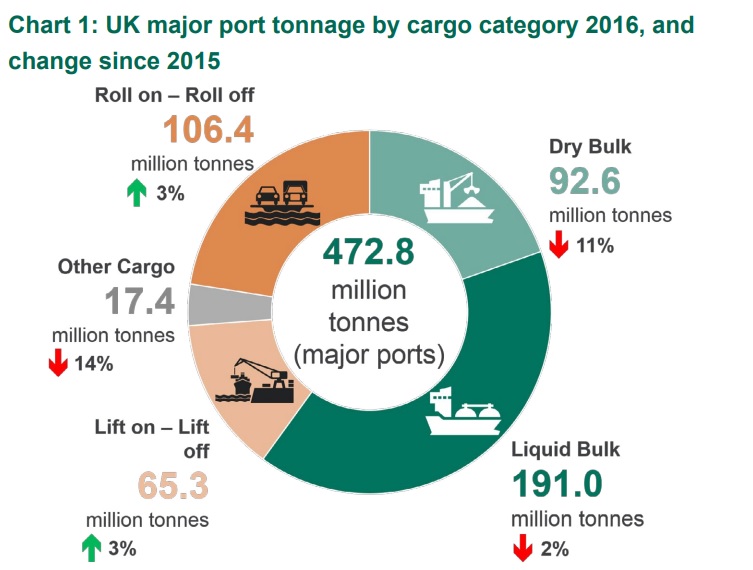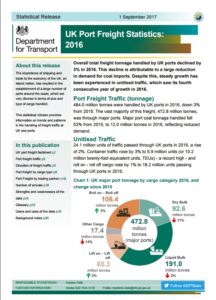The UK Department for Transport has published its Annual UK Port Freight statistics, which shows that overall total freight tonnages handled by UK ports declined by 3% in 2016, to 484mt. Despite this, there has been growth in unitised traffics and trade with European countries.
The Department of Transportation attributes the decline to a large reduction in demand for coal imports, which is a direct consequence of changes to UK Government energy policy in recent years.

Specifically, in 2016:
- total tonnage decreased by 3% to 484.0 million tonnes
- coal handled showed the biggest decline of any cargo category more than halving to 12.0 million tonnes
- liquid bulk goods, which account for 40% of total tonnage, decreased by 2%
- crude oil handled has halved since 2000, to 87.1 million tonnes
- unitised traffic rose by 2% to 24.1 million units
- container units reached a record high of 5.9 million units
- overall roll-on roll-off traffic rose 1.4% to 18.2 million units
- the volume of import and export motor vehicles increased 1% to 4.5 million units
British Ports Association Chief Executive, Richard Ballantyne, said:
“The DfT’s figures highlight the significance of unitised traffic to the UK economy and particularly ‘Roll-on Roll-off’ HGV vehicle trade with Europe. This underlines the importance of agreeing a post Brexit deal with the EU that preserves as many of the advantages of Customs Union membership and avoids the need for border interventions, congestion and delays at Ro-Ro ports, whilst also enabling UK ports to take advantage of new global trade deals.”
Explore more by reading the full report:





























































